AAPS - USC STUDENT CHAPTER
The AAPS University of Southern California (USC) Student Chapter was established in 1996 by graduate students Neil Mathias, Wilson Meng, and Silvia da Costa in the Department of Pharmacology and Pharmaceutical Sciences at the University of Southern California School of Pharmacy.
The USC Student Chapter was one of the only four student organizations within AAPS in 1996. While its chapter members have continued to uphold the chapter's reputation for active involvement in speaker programs, social events, and networking, AAPS - USC Student Chapter's main pride lies in the success of its annual "Moving Targets" multidisciplinary symposium.
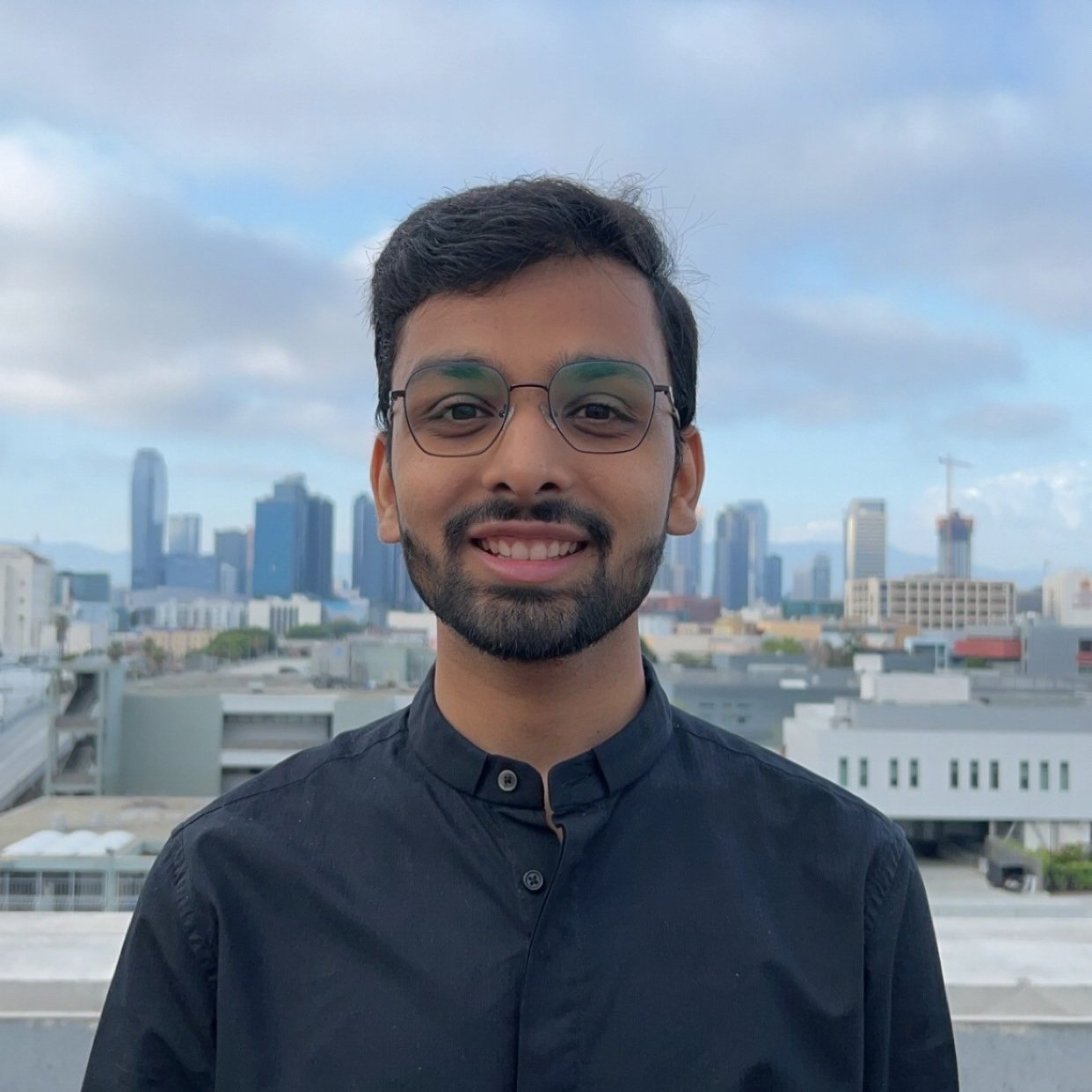
Dhruv Kantilal is pursuing a Master's degree in Clinical and Experimental Therapeutics at the USC Alfred E. Mann School of Pharmacy, holding a Bachelor of Pharmacy degree from MS Ramaiah University of Applied Sciences, Bangalore, India. Currently, he is actively engaged in research within Dr. Daryl Davies's laboratory, where the primary focus is on the treatment of Alcohol Use Disorder (AUD), Alcoholic Liver Disease (ALD), and neurodegenerative diseases. Dhruv's research interests encompass neuropharmacology, traditional medicine, and therapeutics, demonstrating a commitment to advancing the understanding and treatment of complex neurological and pharmacological challenges in his academic journey.
Dhruv Kantilal
CHAIR

Ella Schwab is currently pursuing a Ph.D. in Pharmaceutical and Translational Sciences at the USC Alfred E. Mann School of Pharmacy. In 2021, Ella graduated from California Polytechnic State University San Luis Obispo with a degree in Biological Sciences and a minor in Statistics. During her undergraduate career, she focused on improving neural networks for breast cancer subtyping. Before entering graduate school, she worked at UCLA for two years as a research associate in the lab of Dr. Dennis Slamon. During her time at UCLA, she contributed to the preclinical development of novel cancer therapeutics including ADCs and small molecules. Ella is passionate about using bioinformatics to understand the wealth of publicly available omics data and identify new targets for drug development.
Ella Schwab
COMMUNICATION CO-CHAIR
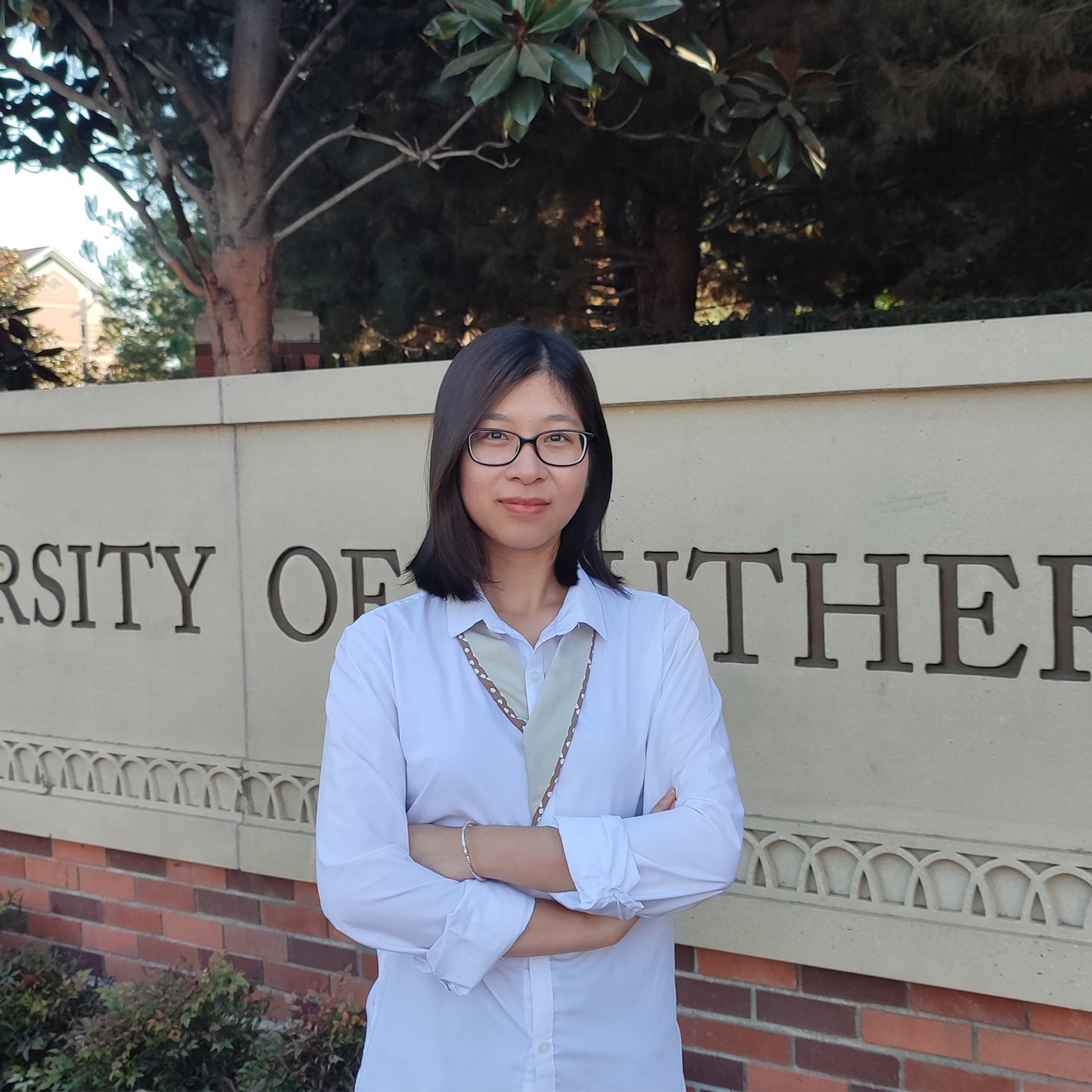
Thuc Oanh Hoang is currently pursuing a Ph.D. in Pharmaceutical and Translational Sciences at the USC Alfred E. Mann School of Pharmacy. She completed her Master’s program in Nanomedicine for Drug Delivery as an Erasmus Mundus scholar in Europe. Her prior works demonstrate a robust background in nanoformulation development encompassing microemulsion, nanocrystals, liposomes and polyplexes. Beyond formulation, Thuc Oanh has cultivated a versatile analytical toolkit for comprehensive drug characterization. Passionately immersed in the realms of biopharmaceutical sciences, she is dedicated to driving forward the evolution of drug delivery technologies.
Thuc Oanh Hoang
SOCIAL CO-CHAIR
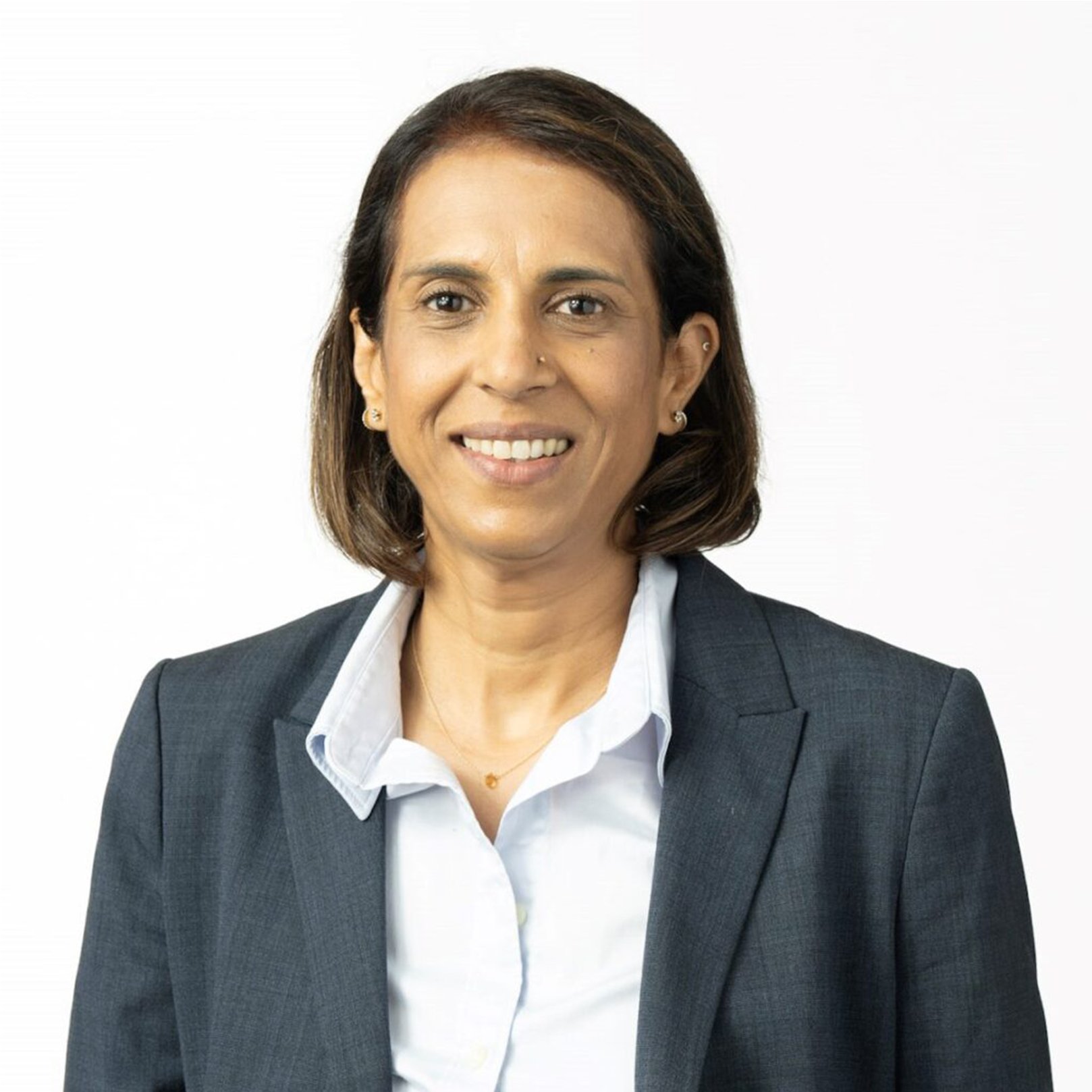
Gauri Rao, PharmD, MS is associate professor of clinical pharmacy at the USC Mann School. She serves as the Director of the Quantitative Drug and Disease Modeling Center.
An expert in quantitative modeling approaches, she leads a research program that focuses on employing a quantitative, “systems-based” approach to rationally design and optimize clinically relevant antibiotic dosing strategies to treat infections caused by highly resistant Gram-negative organisms.
Dr. Rao completed her Doctor of Pharmacy and a Masters in Pharmacometrics at the School of Pharmaceutical Sciences and Pharmacy, University at Buffalo. Between 2016-2023, Dr. Rao was a faculty member at the UNC Eshelman School of Pharmacy, where she served as Director of the UNC Fellowship Program.
Gauri Rao, PharmD
FACULTY CO-ADVISOR

Dhrithi Deshpande is currently pursuing her PhD in Pharmaceutical and Translational Sciences at USC Mann School of Pharmacy and Pharmaceutical Sciences. She holds a Bachelor’s degree in Biotechnology from Dayananda Sagar College of Engineering, Bangalore, India, where she conducted research on eco-toxicological studies, antimicrobial resistance patterns of coliform bacteria, and structural analysis of drug-resistant gene products for a novel bacteriophage-based therapy in lake water treatment. During her Master’s in Molecular Pharmacology and Toxicology at USC, Dhrithi focused on studying the robustness and reproducibility of DNA-seq and RNA-seq tools used in biomedical research, working at the Mangul lab. Additionally, she has worked as a Bioinformatics Research Associate for Xbiome, an AI-based microbiome drug development company, where she was involved in groundbreaking projects related to human microbiome-derived small molecule prediction platform. Her work included evaluating computational methods for predicting structural similarity, ADMET profiling, target prediction, pharmacokinetics of identified small molecules, and analyzing patterns and network structures in small molecules. She also contributed to the development of a pipeline for identifying secondary metabolite biosynthetic gene clusters and their small molecule products from metagenomic data obtained from cancer patients, collaborating with interdisciplinary teams in the process.
Dhrithi Deshpande
CO-CHAIR

Astha Tewatia is pursuing MS in Pharmaceutical Sciences at USC Alfred E. Mann School of Pharmacy. She holds a MS degree in Chemistry from J.C. Bose University of Science and Technology, YMCA, India. She has previously worked on studying Spironolactones and currently engaged in large scale peptide synthesis. She aspires to become a Drug Scientist and help solve real world problems and make significant contributions in the field of pharmaceuticals.
Astha Tewatia
COMMUNICATION CO-CHAIR

Mana is on a dynamic journey in the world of pharmaceuticals, currently pursuing a Master of Drug Development Management at the University of Southern California. Her academic journey began in Hungary, where she earned her PharmD degree from the University of Debrecen.
With a global perspective, Mana has immersed herself in various pharmacy settings through internships, ranging from community pharmacies in Hungary and Iran to clinical pharmacies in Hungary such as the National Institute of Oncology and the National Institute of Pulmonology, as well as in two clinics in Budapest, Hungary. Additionally, she served as a research assistant in the Department of Biopharmaceutical Sciences at the University of Debrecen, focusing on the effects of traditional Chinese medicine on renal cancer cells, which constituted her PharmD thesis project.
Mana also worked as a regulatory affairs intern at Dexcom, a pioneer in producing Continuous Glucose Monitoring (CGM) devices, based in San Diego, California. She contributed to the Team-based Regulatory and Quality (TRAQS) project from USC during her internship at Dexcom.
Currently, Mana is actively engaged in research within Dr. Daryl Davies’ laboratory, focusing primarily on the treatment of Alcohol Use Disorder (AUD), Alcoholic Liver Disease (ALD), and neurodegenerative diseases, particularly exploring the effects of traditional medicine on these conditions. Additionally, she is deeply interested in computational drug design and actively involved in ongoing research in computational drug design, particularly in the field of cancer therapeutics.
Mana Rahimian
SOCIAL CO-CHAIR
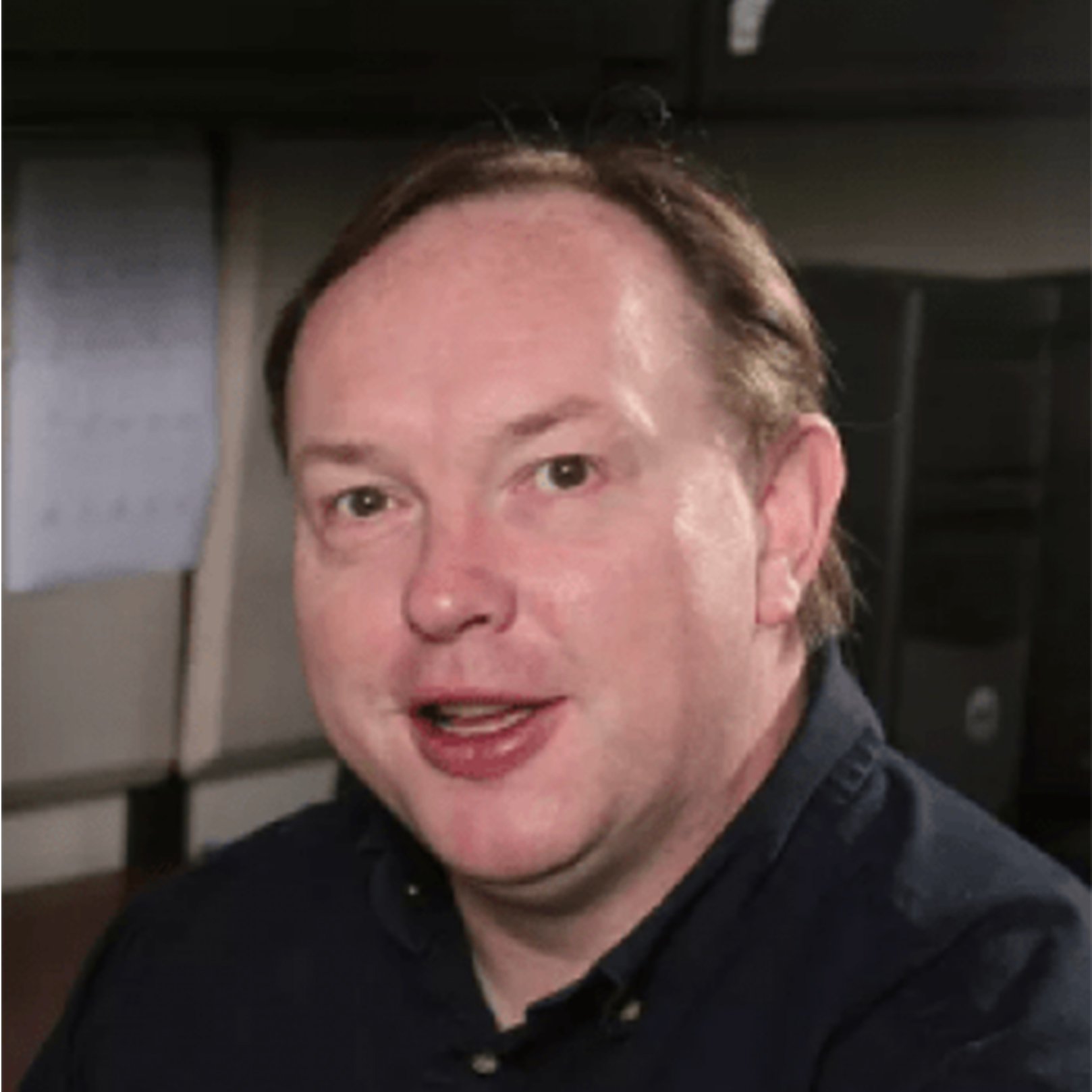
Ian Haworth received his PhD from University of Liverpool, UK (adviser: Prof. Raymond J. Abraham), 1986-1989, in physical organic chemistry, and conducted postdoctoral work at Oxford University, UK (adviser: Prof. W. Graham Richards), 1989-1992. He joined USC in 1992. His research interests lie at the interface between chemistry, biology and the computational sciences, with the goal being an improved understanding of the dynamics of molecular association of nucleic acids and proteins. He has published more than 60 papers in this area, and his work has attracted funding from federal and non-federal sources.
Haworth’s laboratory has developed algorithms for nucleic acid structure building, nucleic acid aptamer design, transporter protein structure and analysis, and MHC-peptide-TCR association. The basis of these algorithms is accurate reproduction of molecular association through proper molecular and theoretical descriptions of biological interfaces.
Ian S Haworth, PhD
FACULTY CO-ADVISOR
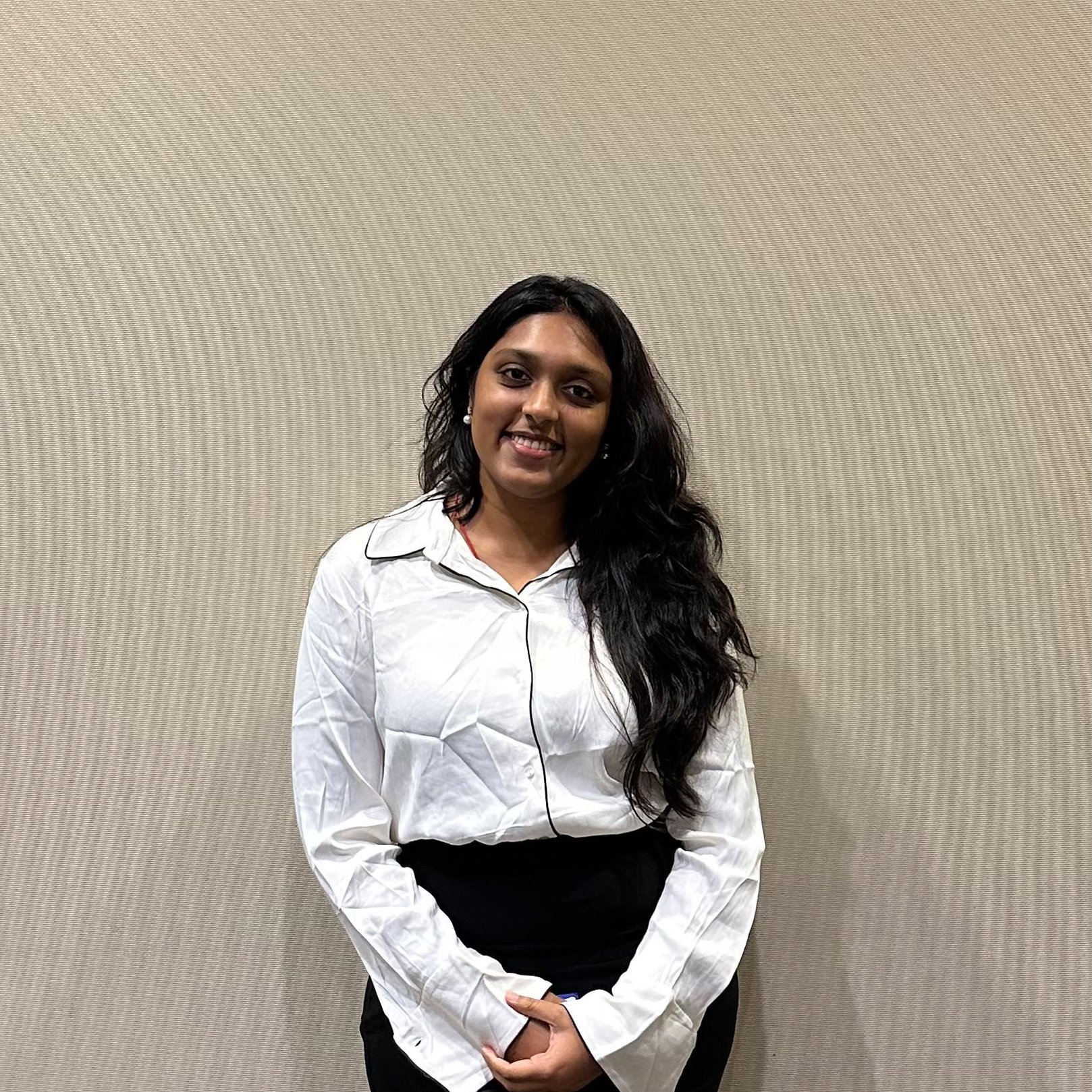
Palak Agarwal is a second year MS student in Pharmaceutical Sciences at the USC Alfred E. Mann School of Pharmacy. She is motivated to actively participate in the field of drug development research and develop innovations that can create solutions to complex problems of the industry. She is an active participant in the field of computational chemistry and wishes to advance the drug development industry with her efforts.
Palak Agarwal
TREASURER
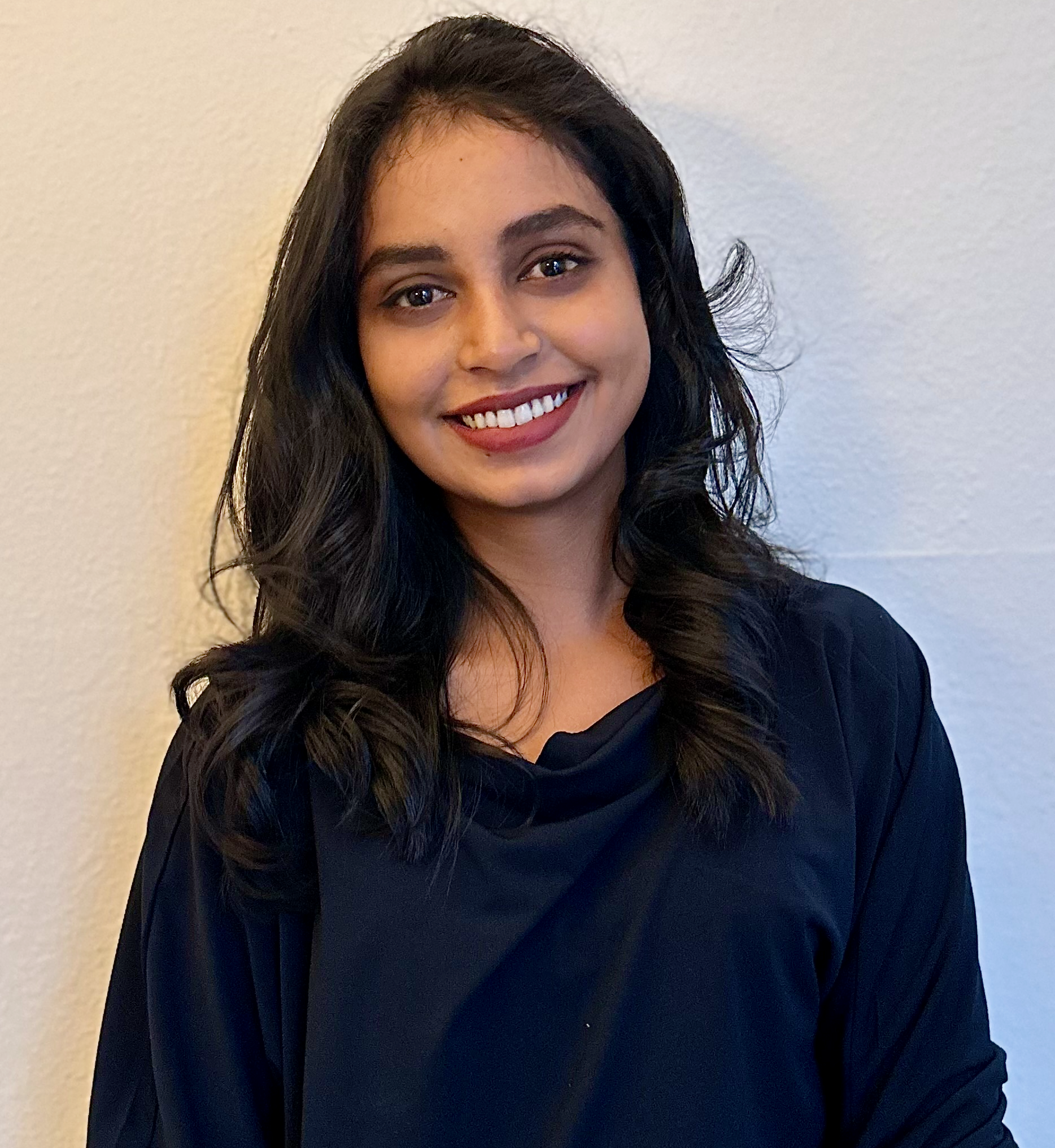
Bhavatharini Arun is a Pharm D graduate and a current Ph.D. candidate in Pharmaceutical and Translational Sciences at USC's Alfred E. Mann School of Pharmacy. She is passionately shaping her career as a future Pharmacometrician. She has contributed to a bioequivalence study, followed by the model-informed dose optimization of a powder for oral suspension of 6-mercaptopurine (6MP), that has been clinically translated and prescribed to patients. Additionally, she worked on a project involving dosage optimization of Lamotrigine in pregnancy, employing a pharmacometric approach through modeling and simulation techniques. Another work involved a pharmacometric approach for the dosage optimization of Colistimethate Sodium in critically ill South Indian patients. Through a commitment to the 'Technical track,' she is acquiring essential skill sets and building core competencies in Pharmacometrics. Her journey involves the dynamic application of quantitative science within the realms of the 'Disease track' and 'Drug Development track,' aiming to emerge with a profound impact on pharmaceutical research.
Bhavatharini Parthasarathy Arun
SECRETARY
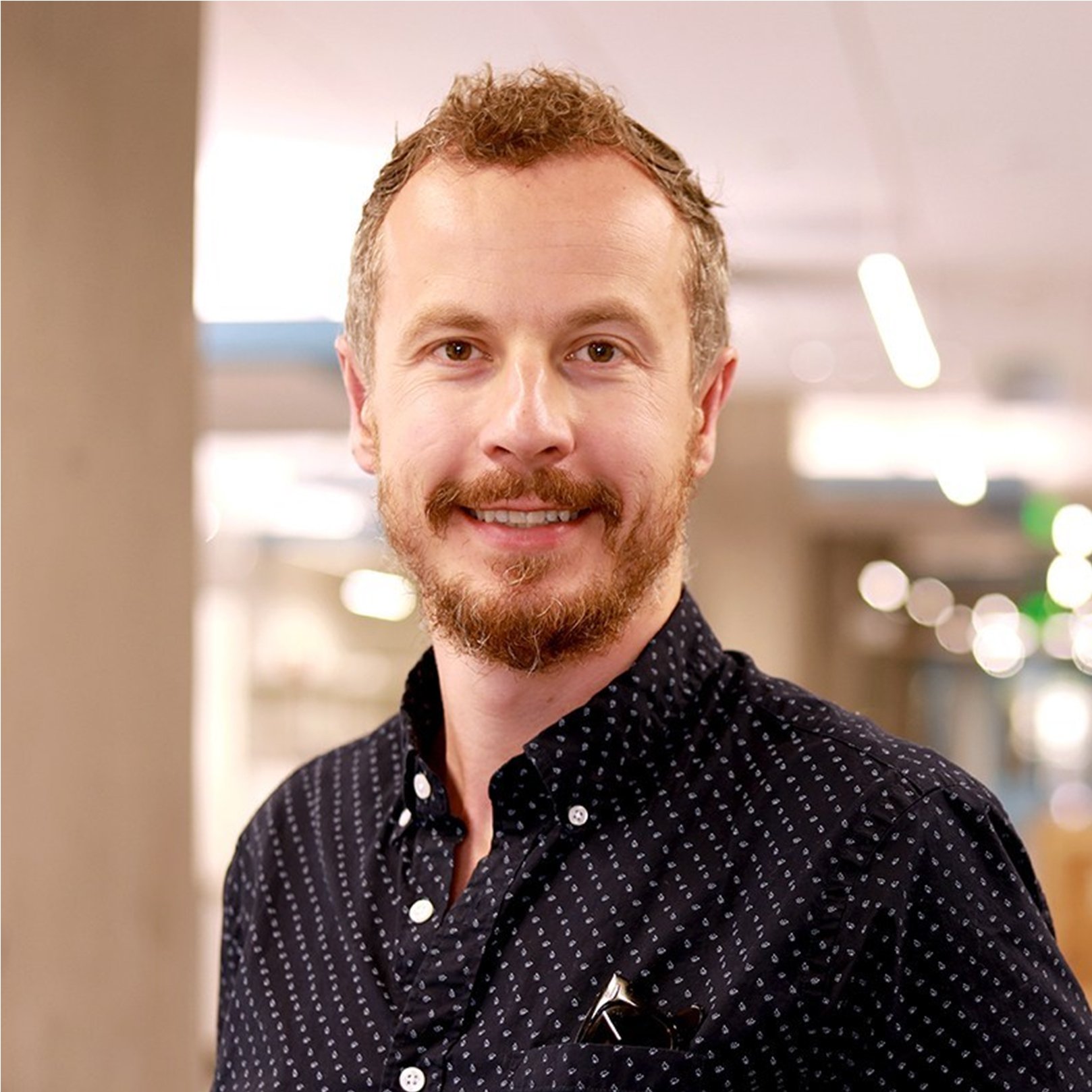
Serghei Mangul, PhD, is an assistant professor in the Titus Family Department of Clinical Pharmacy at USC Mann. He completed a postdoctoral fellowship at UCLA’s Institute for Quantitative and Computational Biosciences. Before that, he was a visiting scholar at Harvard Medical School after he earned his PhD in bioinformatics at Georgia State University.
His work combines expertise in computational biology and bioscience to help close the digital divide that can prevent life scientists from maximizing the potential of data-driven investigation.
Mangul’s research focuses on improving the techniques of bioinformatics—computational analysis of biological data—to better understand the mechanisms of disease. The mission of his lab is to design, develop and apply novel and robust data-driven, computational approaches that will accelerate the diffusion of genomics and biomedical data into translational research and education.
While at UCLA, Mangul helped create a plan for training research faculty in developing nations on how to enhance their bioinformatics programs through cloud computing and big data analysis. Nature Biotechnology published the concept paper, and Mangul’s team also developed an online resource guide.
Serghei Mangul, PhD
FACULTY ADVISOR
